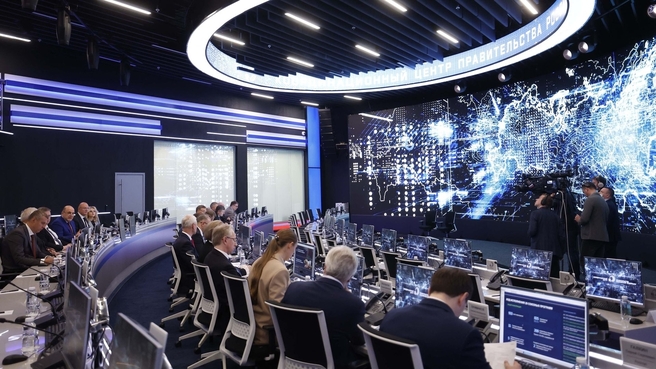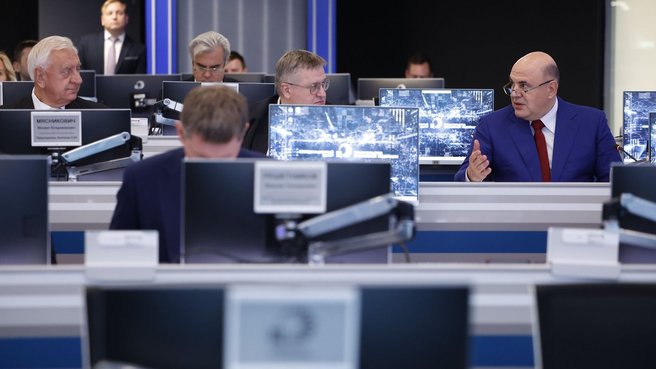Mikhail Mishustin’s opening remarks:
Good afternoon, colleagues,
During our strategic session today, we will focus on promoting humanitarian cooperation with Belarus, our closest ally and partner. I would like to extend a special welcome to our esteemed guests, Chairman of the Board of the Eurasian Economic Commission Mikhail Myasnikovich and Ambassador Extraordinary and Plenipotentiary of Belarus to Russia Dmitry Krutoy.
As President Putin emphasised at the meeting of the Supreme State Council of the Union State in April, Russia and Belarus are united by traditional friendship and common cultural, spiritual, and moral values. We use this foundation to build the Union State and to strengthen integration across all areas, not just in trade, the economy, industry, or the social sphere, but also, importantly, in the humanitarian sphere which we will cover extensively today.
Together, we are implementing in full coordination 28 union programmes. These programmes were approved by resolution of the Supreme State Council of the Union State under our presidents, Vladimir Putin and Alexander Lukashenko.
Unity between our countries is needed now more than ever in the face of external challenges. Russia and Belarus are jointly opposing the full-scale sanctions war being waged against us, the unlawful trade and economic restrictions, and the strong information pressure from the collective West.
We should respond to these challenges by speeding up integration processes within the Union State and creating additional opportunities for the citizens of our countries, primarily, the youth. We need to create a unified and barrier-free socioeconomic, cultural and humanitarian space. These are the instructions that our presidents have issued to us.
Deepening ties in science and education is our priority. It is essential to boost the appeal of studying at Russian colleges and universities for Belarusian applicants, and vice versa.
We have made several significant decisions. When young people from fraternal Belarus apply to study in Russia, their results in Olympiads and centralised testing, which is equivalent to our Unified State Exam, are taken into account. The state quota has been increased to 1,300 spots for this academic year.
The Belarusian-Russian University in Mogilev has been successful, and there are plans to expand the network of branches of our universities in Belarus and to establish an educational cluster for the Union State.
As evidenced by the successful Congress of Young Scientists of Russia and Belarus, held in March at the National Academy of Sciences of Belarus, the public is interested in launching new and promising initiatives.
Strengthening cultural ties is another area of focus. There are many talented people among our compatriots. Residents of the Union State should have the opportunity to get acquainted with the works of artists and the art of the theatre, to visit concerts, exhibitions, and to read good books. To get there, we need to ramp up interaction between our theatres, museums, libraries, archives, and to develop tour projects. It is also crucial to actively involve regions and cities, and to make use of the potential of the Forum of the Regions.
Sports deserve a separate mention.
Unfortunately, due to the illegal sanctions, Russian and Belarusian athletes’ ability to participate in many international competitions has been undermined. Given the circumstances, we need to focus on developing our own national platforms and to engage with associations such as the Commonwealth of Independent States, the Shanghai Cooperation Organisation, and BRICS.
In August, Belarus successfully hosted the 2nd CIS Games, where Russians and Belarusians showed excellent results. We need to think about ways to continue to offer similar competitions.
Russia and Belarus are closely connected, including traditions, shared values, rich history, and heroic past, all of which are equally important to our citizens.
Together, we must do everything necessary to preserve the historical memory of our forefathers for future generations and to counter the attempts to downplay the achievements of our ancestors.








